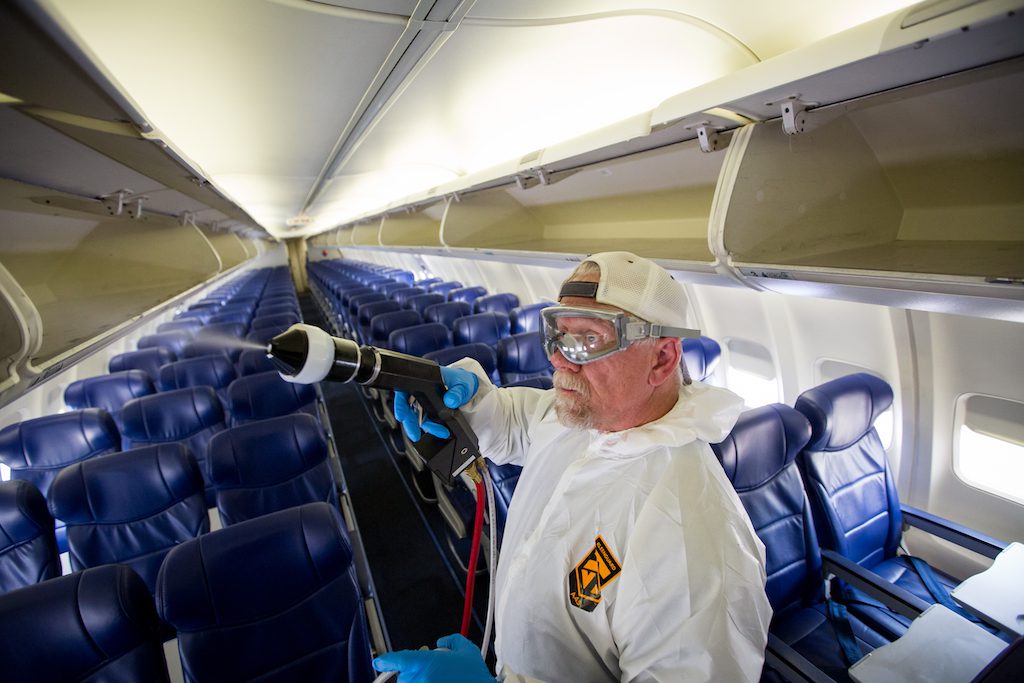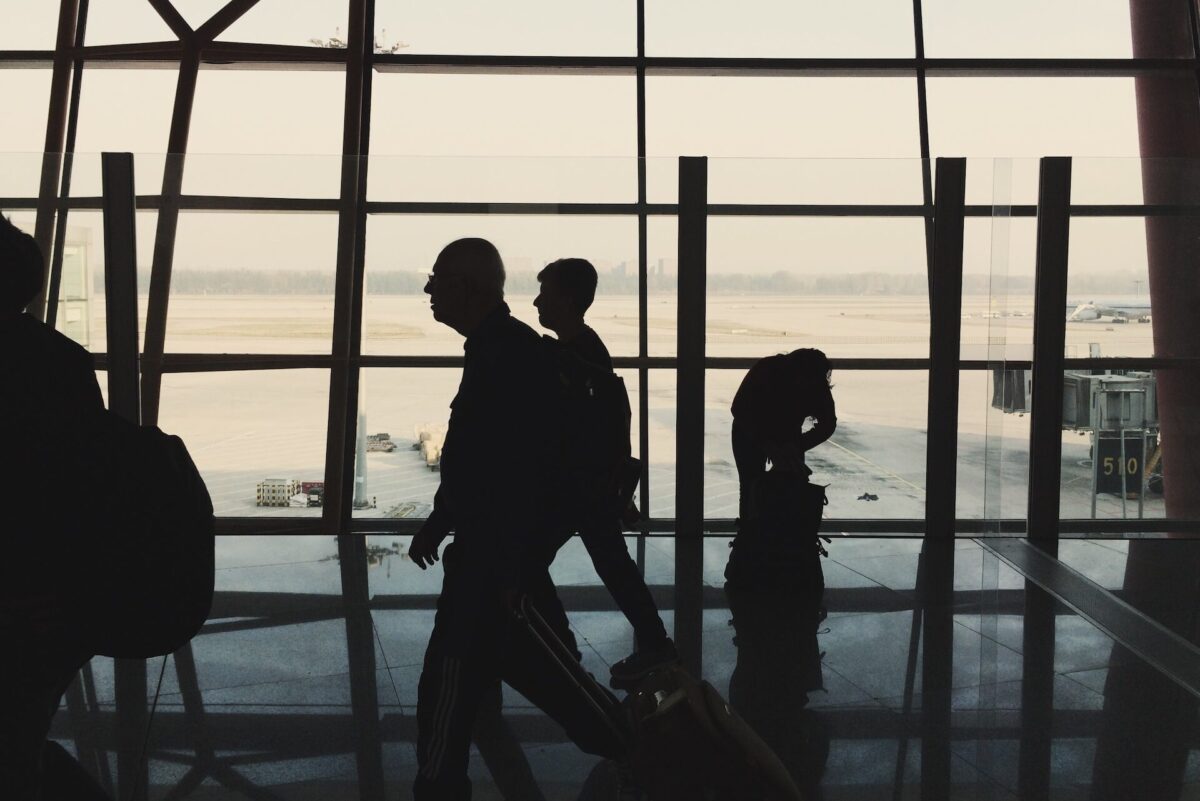U.S. Airlines Could Regret Taking Billions More In Government Bailouts

Skift Take
Most U.S. airlines say they want, or at least are willing to take, tens of billions of dollars in new federal bailouts. But they may want to be careful about what they wish for.
Since deregulation, in the late 1970s, a sizable percentage of consumers have looked at airlines warily, with some accusing them of charging premium prices for service they could not deliver. They have complained as airlines reduced seat width and legroom, removed free meals, and invested in business and first class seats, at the expense of economy class. And some have been apoplectic as airlines have added, or increased, charges for ticket changes, luggage, and food and drink.
Most of these people were whiners. Yes, airlines indirectly receive federal government assistance — those runways don't build themselves — but they are independent, publicly traded corporations with a duty to extract maximum value for shareholders. Plus, consumers have undoubtedly benefited from deregulation, with airlines usually offering more choices at lower average fares, even adjusted for inflation.
But what happens to this consumer/airline dynamic if carriers take more federal money in a second round of CARES funding? Whether fair or not, we already know how consumers complain when they think airlines are nickel-and-diming them. We also know how lawmakers love to bash airlines when it suits their political needs.
Might consumers and politicians create even more unrealistic expectations for airlines after a second round of bailouts?
Think of the possibilities. Every time a passenger is denied something — a flight change, a seat swap, or an extra bag or pretzels — the person might say, "You took billions in bailouts and you still treat passengers like crap." Or what happens when an airline increases its fees for checked luggage, or institutes new fees? People may have even more unreasonable expectations of what airlines should deliver.
Now, we know airlines have already accepted as much as $50 billion in federal money. Few are complaining, perhaps because consumers are benefiting, since the government essentially is subsidizing air service by paying many employee salaries. Airlines can offer $14 one-way fares because another entity is defraying the costs.
But there's a big difference between the first CARES Act, and recent proposals for a second round. The first bailout was forged in the chaos in April, just after Covid-19 reached the United States in real numbers. Airlines were in free-fall, requiring fast help just to stay afloat. In addition, some lawmakers hoped the Covid-19 crisis would be short-lived, believing airlines needed six months of help before a real recovery began. Now, we know better.
That's why a new bailout would be another matter. The government would be helping airlines serve a market that no longer exists, and will not for some time. On Wednesday, the Transportation Security Administration screened 590,749 passengers, about a quarter as many as on the same weekday last year. Airlines probably don't need federal money to operate efficiently in this new reality.
Most employee unions want the funding, because it would ensure airlines would keep more workers on payroll. But taking the money could limit airlines in the future. Maybe they can handle consumer outrage – if the price is right, people always fly, even if they complain — but what will they do about regulators and Congress?
It has been awhile since Congress showed a real appetite for pro-consumer regulations. But as Hunter Keay, an analyst with Wolfe Research, noted in an August 7 report, there's real chance of a sweeping changes in Washington after November's election.
If Democrats take over the legislative and executive branches of government, might they use rhetoric about bailouts to pass new legislation that could restrict airline profits?
"Many prominent members of Congress have proposed 'pro-consumer' regulations over the last few years that fizzled out due to a lack of bipartisan support," Keay said in his report. "As airlines (successfully) seek government assistance to bridge to better times, the appetite for government retribution (for lack of a better term) may grow."
Let's play this out. Maybe it's two years from now, and demand returns. After years of economic disaster, airlines finally have pricing power, because they retired hundreds of aircraft and no longer have enough seats to satisfy demand. Fares will go up, and airlines might add new fees, too.
How might Congress act?
Keay looked to history to find out. Looking at the past six years, Keay said he found 21 unsuccessful airline regulation bills that could pass after the 2020 election if sentiment about airlines changed. Some would merely create nuisances, but others, like limits on bag fees and rules about minimum legroom, could be costly.
Remember the Seat Egress in Air Travel Act of 2017, which would ensure passengers had a reasonable amount for personal space? Or Sen. Richard Blumenthal's, D-Connecticut, Airline Passenger Bill of Rights, introduced last year? Or the FAIR Fees act of 2019, which might have capped bag fees?
Moreover, as Keay notes, not every restrictive regulation must come from Congress. The Department of Transportation has considerable authority to place limits on airline fees and charges. It implements restrictions like the tarmac-delay rule, requiring airlines to let passengers off the plane after a certain number of hours.
Maybe the bailouts would have new influence on a future Congress. Perhaps airlines can take the money, and neither passengers nor lawmakers will care. (No one seems to hold a grudge against U.S. automakers.) Or maybe airlines won't take the money, and they will still be subjected to onerous regulations.
But let's remember U.S. carriers don't need this money. Most of them already have slimmed down, preparing for the reality of Oct. 1, when they expect federal funding to run out. Until recently, some airline leaders, including Delta Air Lines CEO Ed Bastian, sounded lukewarm on new funding, though most of them have fallen in line.
It is true that if airlines don't accept more funding, or if Congress does not give it to them, thousands of people will lose their jobs. But if airlines want to set themselves up for future success, they may want to consider saying 'no' to round two.




